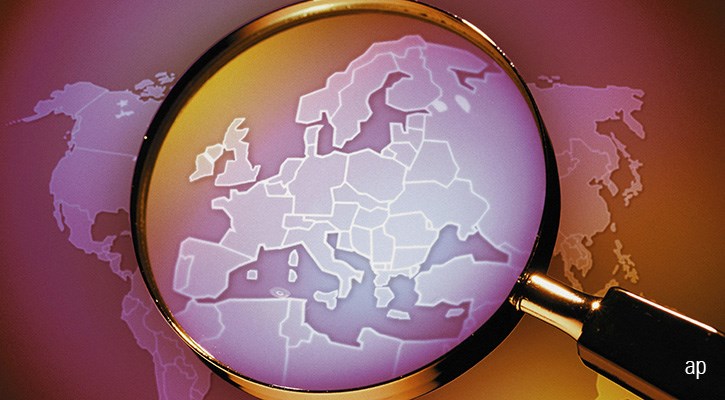
Europe remains an out-of-favour region for equity investors. The recovery from the coronavirus pandemic is uneven, with countries like Spain now seeing a rise in infections, while the region lacks headline-grabbing tech companies like Tesla and Amazon.
European indices are also full of companies that are currently unloved by investors, such as banks, energy firms and utilities. Economic growth has been weak for years, with high unemployment and indebted companies even before the pandemic struck.
But despite all the gloom, there are plenty of arguments for investing in the region as European countries aim for recovery next year.
1. Help is on the Way
Governments across the world have spent trillions trying to rescue their economies from the Covid-19 crisis and the EU’s €750 billion recovery fund is one of the more ambitious programmes. As well as targeting the immediate problems caused by the virus, the lion’s share of the fund is being directed to “recovery and resilience”, so will involve directing spending towards key areas such as digital innovation and bolstering the region’s green energy infrastructure.
Jamie Ross, manager of the five-star rated Henderson Euro Trust (HNE), thinks the renewable energy and telecoms sectors will be natural beneficiaries of the fund – he likes Italy’s Enel (ENEL) and Telecom Italia (TIT) in these industries.
Ross thinks the recovery could also even up some of the regional disparities and help the South of Europe more than the North. “We are also of the view that you are more likely to find the ‘winners’ in countries that have been hard hit, such as Italy, rather than in those countries who have seen a lesser impact, Germany for example,” he says.
2. Europe is a Leader in ESG
Europe is a world leader in the “E” of ESG (environment) with a number of companies such as Danish wind turbine maker Vestas (VWS) and Italy’s Enel leading the way. “Environmental issues are most in focus and most understood in Europe,” says JPMorgan’s global head of equities Paul Quinsee.
In some Scandinavian countries such as Sweden, renewable energy already makes up the majority of domestic energy consumption. Sweden also aims to be a net-zero carbon economy by 2045.
Elsewhere, in the "G" of ESG, Europe has also made strides in improving the representation of women in business. In 2002, Norway was the first country in the world to impose quotas for women in the boardroom, and Germany, France and Spain have followed its lead.
3. Europe is Unloved
For global equity investors, there have been two dominant stories this year: US tech valuations and China’s swift recovery from the crisis. Like the UK, European equities have been out of favour, not least because the main benchmarks are full of value stocks.
While there have been big variations in country indices (Germany’s Dax is roughly flat this year, while Spain’s Ibex has fallen sharply), the overall picture is for a weak year for the region – the Morningstar Europe Large-Cap Index is 3% lower year to date.
But JPMorgan’s Quinsee says the global recovery could be broader-based next year and that works in Europe’s favour: “There is a pretty good opportunity for many of the left behind industries to have a period of catching up”.
Michael Grady, head of investment strategy and chief economist at Aviva Investors, agrees that "valuations and the form of the cyclical recovery favour Europe and Emerging Markets over the US and Japan".
Among UK funds that are highly rated by Morningstar, TM Crux European Special Situations is Gold-rated, as is Barings Europe Select and Schroder European. Among these funds, Barings Europe Select has posted the largest gains, with a rise of 7%.
4. It has World-Leading Companies
Henderson's Ross believes this year’s dislocation, which has divided the stock market winners from the losers, has made company selection more important. And while Europe lacks globally recognised tech names, it does have pockets of digital innovation. One of Ross's most recent investments is Swedish computer games company Embracer (EMBRAC B), not least because the gaming sector has been a big beneficiary of lockdown life – we have recently written about Sony, which is about to launch the PlayStation 5.
Away from technology, Europe is a world leader in others industries, with countries like Italy associated with luxury cars brands Ferrari and Lamborghini, and France still central to global fashion. Paris-based LVMH (LVMH) was poised to take over US jewellery brand Tiffany this year, but the deal has just been called off by LVMH. "We believe that a portfolio of strong leading brands in several luxury niches grants LVMH a wide moat and should allow it to generate economic profits well into the future," says Morningstar analyst Jelena Sokolova.





























